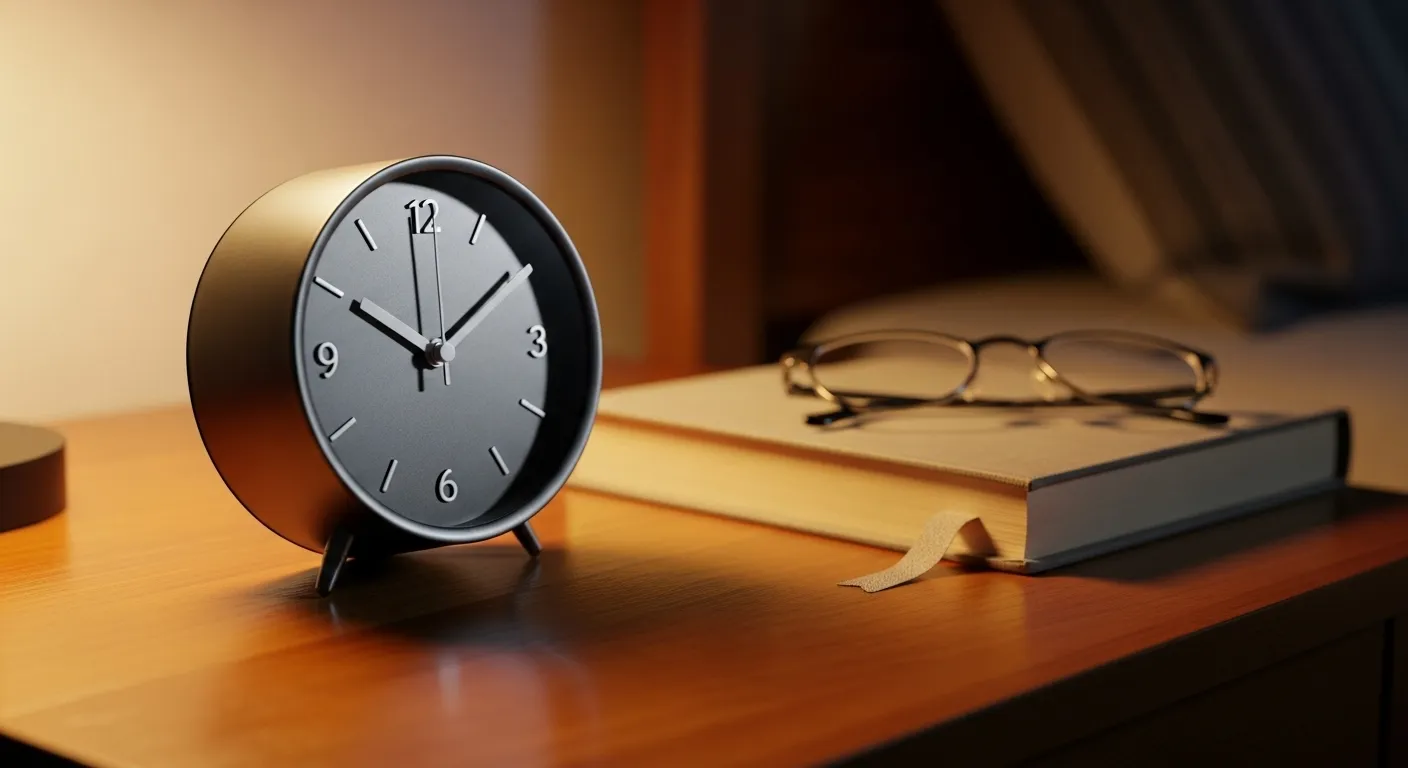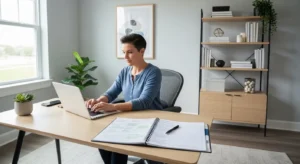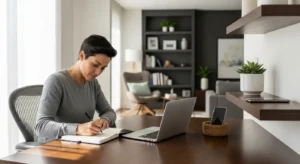
Your Bedroom is a Sanctuary: Creating a Screen-Free Zone
While digital routines on your device are crucial, the physical environment where you sleep plays an equally important role. Our brains are highly associative. If you consistently work, eat, and scroll in bed, your brain learns to associate your bedroom with activity and alertness, not with rest and relaxation. To truly improve sleep habits, we must reclaim the bedroom as a sanctuary dedicated to sleep.
The single most impactful change you can make for a screen free bedtime is to establish one simple, non-negotiable rule: your phone does not sleep in your bedroom. This might sound drastic, but its benefits are profound. Removing the phone from your bedside eliminates the temptation to scroll before sleep, check notifications if you wake up in the middle of the night, and start your day by immediately consuming a stream of information and demands.
The most common objection to this rule is, “But I use my phone as my alarm clock!” This is an easy problem to solve. Invest in a simple, inexpensive, standalone alarm clock. It can be a basic digital clock or even a sunrise alarm clock that wakes you with gradually increasing light. This small purchase is a powerful investment in your sleep quality. By decoupling your wake-up tool from your biggest distraction, you remove the primary justification for keeping your phone within arm’s reach.
To make this rule stick, create a designated “device docking station” somewhere outside your bedroom. This could be a small table in your living room, a shelf in your kitchen, or a corner of your home office. Every night, as part of your wind-down routine, all phones, tablets, and smartwatches go to the docking station to charge. This creates a clear, physical boundary between your connected, active day and your disconnected, restful night. It’s a ritual that signals to your brain that the time for stimulation is over.
With your phone now out of the room, you might wonder what to do in the 30-60 minutes before you go to sleep. This is an opportunity to rediscover sleep-friendly evening activities that calm the mind rather than stimulate it. Consider these alternatives:
* Read a physical book or an e-reader that uses e-ink technology, which does not emit disruptive blue light.
* Listen to a calming podcast, an audiobook, or relaxing music. You can start it on your phone before you put it away for the night or use a smart speaker.
* Do some light stretching or gentle yoga to release physical tension from the day.
* Write in a journal. This can be a great way to process your thoughts, unload worries, and clear your mind before sleep.
* Spend some quiet time meditating or practicing deep breathing exercises.
Think about the cues in your environment. You have a desk for work, a kitchen for cooking, and a sofa for relaxing. Each space primes your brain for a specific activity. By making your bedroom a strictly screen-free zone, you are creating a powerful environmental cue for sleep. When you enter your bedroom at the end of the day, your brain will begin to associate it with only one thing: rest. This is one of the most effective strategies for a better relationship between your phone and sleep, as recommended by experts at organizations like the Sleep Foundation.




